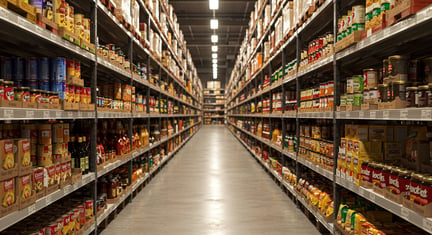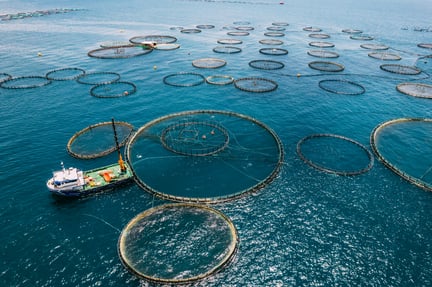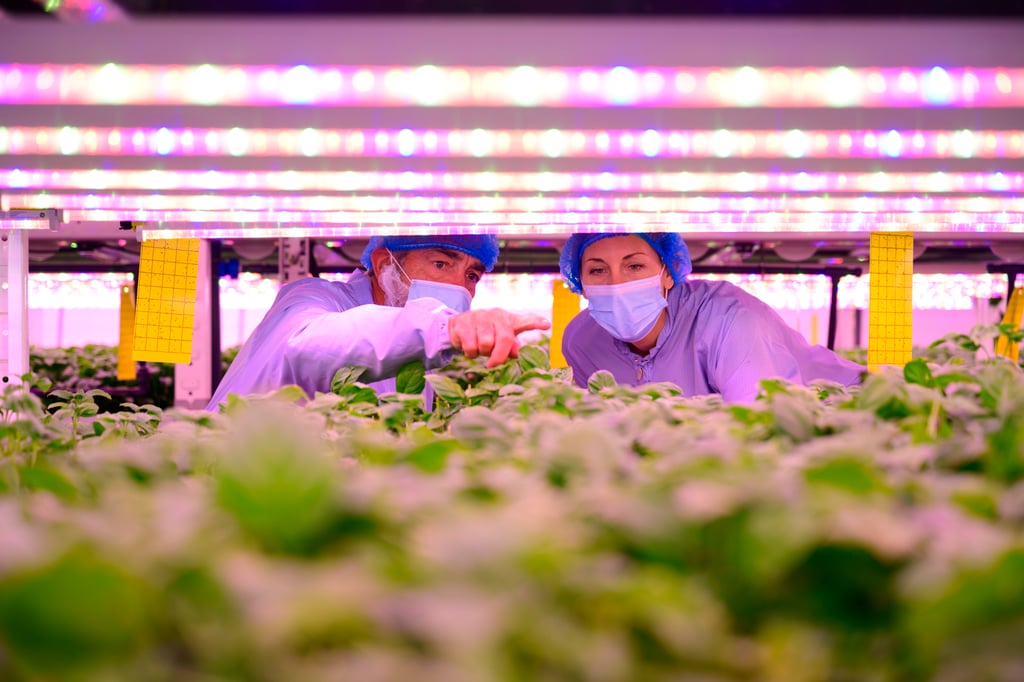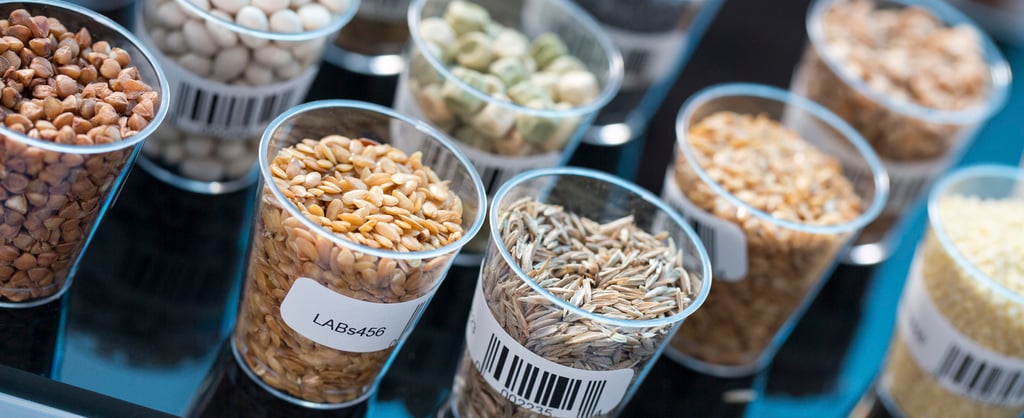
HACCP Certification & Training Services
Essential food safety certification delivered by experts
Your key to accessing major food markets
The Hazard Analysis & Critical Control Points (HACCP) standard addresses the global need for ensuring that food safety best practices are adhered to by organisations in the food processing industry. It does this by identifying specific hazards in food production and implementing measures for their control through a quality management system (QMS). HACCP is an important prerequisite for organisations that wish to secure other certifications such as BRCGS and FSSC 22000 and is mandatory for operating in several markets including the U.S. and throughout the European Union.
Our HACCP services
LRQA is a UKAS-approved provider of HACCP training and certification services. Whether you’re an early-stage food enterprise or an established brand, our experts use the same proven methodology to help transform your food manufacturing processes across the global supply chain.
Training
Our practical client training courses are designed for varying levels of experience and led by qualified tutors. They can be delivered on-site or remotely, or through a blend of the two, in a variety of languages.
Gap analysis
HACCP gap analysis looks at your existing food QMS and assesses it against the standard’s requirements. This helps us determine your organisation’s readiness for its HACCP assessment and close up any gaps.
Certification
The LRQA certification process audits and certifies your QMS according to HACCP fundamentals, assessing its effectiveness and compliance with the standard’s requirements and opening the door to global markets for your organisation.
Integrated audit
Integrating your QMS enables you to benefit from a more efficient and cost-effective audit and surveillance program covering complimentary areas such as BRCGS, FSSC 22000, and ISO 45001.
Why HACCP Certification Matters for Your Business?
HACCP certification is a strategic investment that delivers measurable value through consumer trust, operational efficiency, regulatory compliance, and market growth. Data-backed research and expert consensus highlight why HACCP matters for a modern food business.
Benefits of HACCP Certification
Ensures Food Safety Across Production
HACCP certification helps organisations systematically identify, evaluate, and control food safety hazards at every stage of production. This proactive approach minimises risks of contamination and ensures products are consistently safe for consumption.
Meets Local and Global Requirements
Certification demonstrates compliance with both national food safety laws and international standards. This recognition builds credibility with regulators, customers, and supply chain partners.
Boosts Operational Efficiency
By streamlining processes and reducing errors, HACCP helps organisations cut costs linked to product recalls, waste, and rework. A well-implemented HACCP plan improves efficiency and drives more consistent quality outcomes.
Strengthens Risk Management
HACCP provides a robust framework for identifying critical control points and managing risks before they escalate. This proactive hazard control not only prevents incidents but also supports business continuity and resilience.
Why work with us?
Global capability
LRQA’s global network of qualified auditors are true subject matter experts with a full working knowledge of the food industry. They regularly participate in the technical committees that develop and improve industry standards and are renowned voices on all things food.
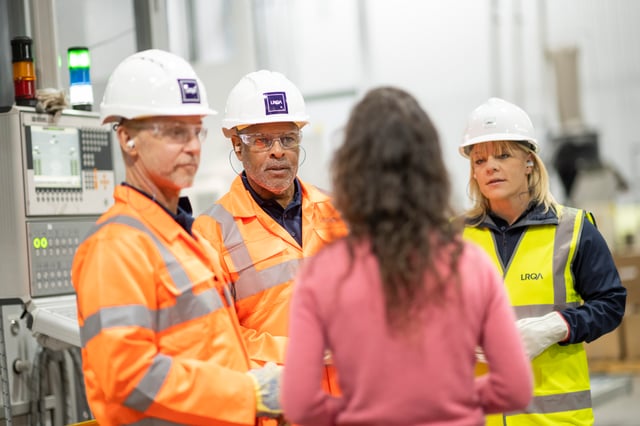
Flexible delivery
Our HACCP training, assessment, and certification services can be tailored according to the needs of your business and can be delivered on site, remotely, or through a blended approach that utilises elements of both on-site and remote delivery to fit around your operations.
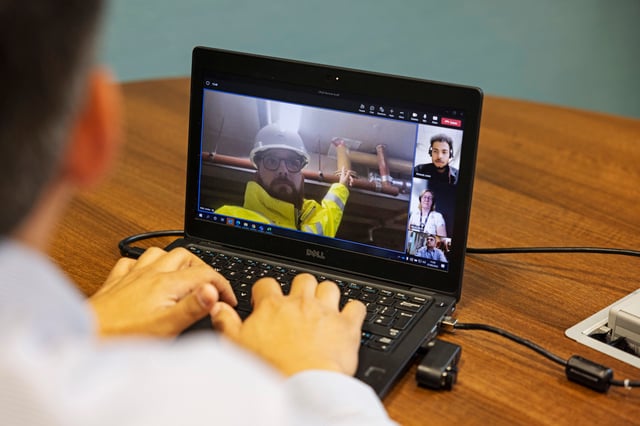
History of firsts
We have world-leading food safety experts on hand to help you achieve your goals. With a specialisation in globally recognised GFSI standards, they have actively contributed to the creation of various food safety standards.

Total assurance
By partnering with us for certification services, you can establish a strong foundation of trust among your stakeholders, showcasing your commitment to implementing and upholding the highest level of best practice.

LRQA’s HACCP Certification Process
The path to certification typically follows these steps:
- Preparation and gap analysis – Review current practices against HACCP requirements.
- System implementation – Develop and apply HACCP plans tailored to your processes.
- Training and awareness – Equip your workforce with essential knowledge.
- Internal audits – Assess system effectiveness before the official audit.
- Certification audit – Independent assessment by LRQA auditors.
- Ongoing compliance – Regular reviews and recertification to maintain compliance.
Would you like to know more about HACCP Certification?
Frequently Asked Questions (FAQs)
What is HACCP certification and why is it important?
HACCP certification verifies that your organisation has a structured food safety management system to identify and control potential hazards. It is essential for building customer trust, complying with regulations, and gaining access to key international markets.
What are the 7 stages of HACCP?
The HACCP framework is built on seven core principles that ensure food safety across the supply chain:
- Conduct a hazard analysis – Identify biological, chemical, and physical hazards.
- Determine critical control points (CCPs) – Identify points where control is essential to prevent or eliminate hazards.
- Establish critical limits – Define acceptable safety thresholds for each CCP.
- Implement monitoring procedures – Ensure ongoing compliance with critical limits.
- Develop corrective actions – Outline steps to take when monitoring indicates a deviation.
- Verify system effectiveness – Confirm that HACCP controls work as intended.
- Maintain records and documentation – Provide evidence of compliance and continuous improvement.
How often do you need to renew HACCP certification?
HACCP certification typically requires annual surveillance audits and full recertification every three years. Ongoing compliance, internal audits, and staff training are essential to maintaining certification status between audits.
Can HACCP be integrated with other food safety standards?
Yes. HACCP forms the foundation for many other schemes, including ISO 22000, BRCGS, and FSSC 22000. Organisations often integrate HACCP with broader management systems to streamline compliance and reduce duplication in audits.
Is HACCP certification mandatory?
Yes, HACCP certification is legally required in several industries and regions, including the United States, the European Union, and many export markets. Even where not mandatory, it is strongly recommended by regulators and retailers as a foundation for food safety assurance.









